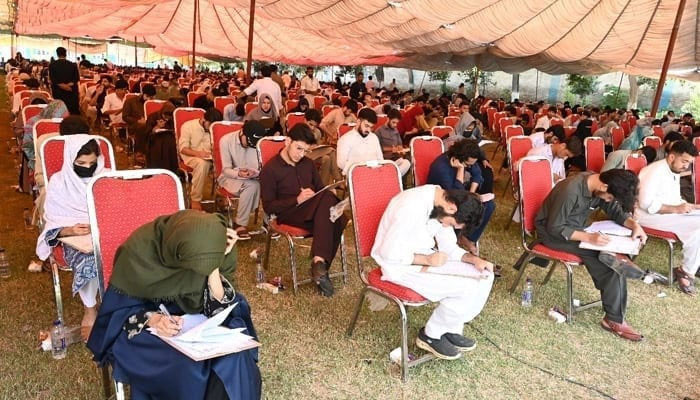Sindh Approves New MDCAT Policy and CNIC-Based Vehicle Registration
The Sindh cabinet has formally approved a detailed Medical and Dental College Admission Test (MDCAT) policy that will govern admissions to MBBS and BDS programs at both public and private medical and dental colleges throughout the province.
During the provincial cabinet meeting, presided over by Sindh Chief Minister Syed Murad Ali Shah, the Sukkur IBA Testing Agency (SIBA) was selected as the designated testing agency for the time being, citing its successful execution of MDCAT-2024. However, future selections will continue to be based on performance.
The decision was made to comply with the Pakistan Medical and Dental Council (PMDC) Act of 2022 and a directive from the Sindh High Court (SHC).
It was determined that the provincial health department will be in charge of managing the MDCAT and admissions processes across Sindh.
According to a statement released by the Sindh Chief Minister’s Office, the PMDC Act mandates a uniform, province-wide MDCAT test each year, and provinces are required to develop a formal policy.
The MDCAT Policy mandates strict compliance with PMDC regulations for determining merit, pass rates, and eligibility. A Sindh domicile, verified by Juvenile Cards and biometric authentication, is required for candidates.
The statement further noted that the allocation and distribution of seats for all medical colleges and universities will be detailed in the annual Prospectus for Session 2024-25, and admitting universities are not permitted to make changes to it.
The provincial health department retains the authority to administer the admissions process, either directly or through a designated medical university. If a university is in charge, the department will establish a supervisory committee to oversee the procedure.
Additional Reforms Approved
In addition to the MDCAT policy, the provincial cabinet authorized a number of significant reforms, including the introduction of CNIC-based vehicle registration and a province-wide reassessment of 3,371 designated heritage buildings.
The cabinet approved the registration of seized government vehicles with modified chassis, the establishment of Vehicle Fitness Inspection Centers, and a final extension for service and salary payments for technical and support staff employed during the COVID-19 pandemic.
CNIC-Based Vehicle Registration System
The meeting addressed a proposal from the excise department to implement a CNIC-based vehicle registration system, along with Personalised Registration Marks (PRMs).
The new system will link registration marks to the vehicle owner’s CNIC instead of the vehicle’s chassis, enabling owners to keep and reuse their personalized number plates even after selling their vehicle.
The Vehicle Identification Number (VIN) will now be based on the chassis number, which will remain the vehicle’s permanent identifier.
- PRMs can be retained, reused, or surrendered by owners.
- The system enables real-time traceability of vehicles and aligns with international standards.
- CNIC-linked registration promotes easy tracking of taxpayer assets and improves administrative convenience.
- It will be a modernized, owner-centric registration system with Integration with NADRA’s national database.
The cabinet gave its preliminary approval to the CNIC-based registration model and the necessary legal changes to bring Sindh’s system into compliance with international best practices and recent reforms in the Islamabad Capital Territory.
The Chief Minister instructed the Excise and Taxation Department to create the CNIC-based system, begin testing it, and then change the necessary legislation.
The CNIC-based vehicle registration would not be implemented right away, but he would hold follow-up meetings to monitor its implementation once it had been properly tested.



Comments (0)
No comments yet. Be the first to comment!
Leave a Comment